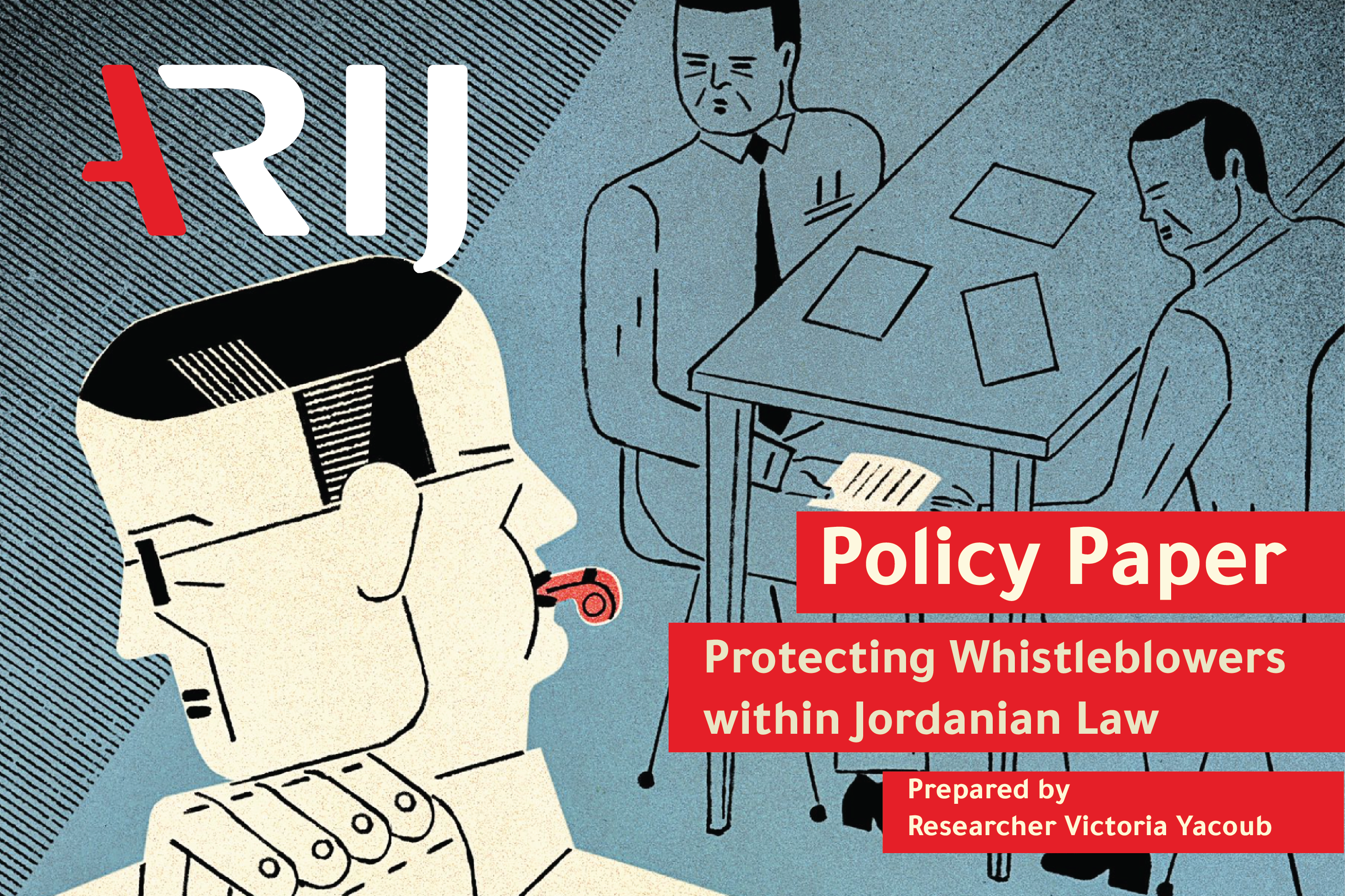Whistleblowers play a critical role in exposing corruption, fraud, mismanagement and other abuses that threaten public health and safety, financial integrity, human rights, the environment and the law. The term “whistleblower” describes the person who discloses information related to criminal acts which include corruption or crimes that violate the law. Every act and activity that threatens the public interest and raises fears requires follow-up and prosecution. It is necessary to protect whistleblowers through strong legislation that ensures that they avoid reprisals such as dismissal from work, non-renewal of their employment contracts, marginalization and threats. Whistleblower protection will facilitate effective reporting of corruption and promote openness and accountability in governmental and institutional workplaces.
The problem raised by this paper revolves around the question of what the legal framework is for protecting whistleblowers in Jordan.
This paper analyzes the laws and regulations that protect whistleblowers and their practice to clarify the repercussions of ambiguous laws on the protection of whistleblowers and witnesses in Jordan.
The paper presents many recommendations, including providing an integrated legal umbrella to protect witnesses in addition to providing guarantees that the whistleblowers would not be subject to exclusion or discrimination. The paper also recommends expanding the scope of legal protection in Jordanian legislation to include compensation for the harm inflicted on the whistleblower or witness and all those covered by the regulation as a result of the report. This is in addition to amending the law to include the protection of whistleblowers who disclose their information publicly or to a third party, such as the media and non-governmental organizations. It is necessary to encourage reporting abuses within a media system aimed at educating society members about their rights and duties towards the public interest to preserve state funds, their performance and institutions.








